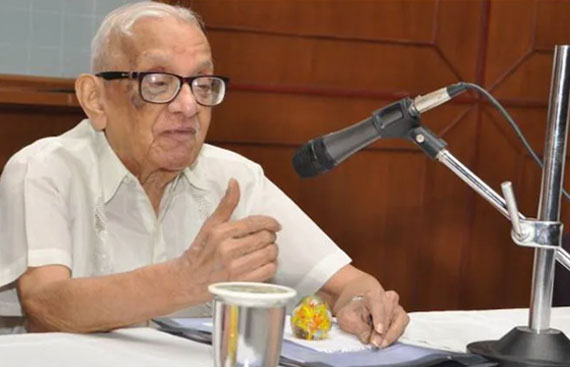'Father of Banking Reforms', & Ex-RBI Governor, M Narasimham passes away at 94

Former Reserve Bank of India (RBI) governor M Narasimham passed away on April 20 after batteling Covid-19 related issues at the age 94. He breathed his last at Hyderabad hospital.
Narasimham served the first and only governor to be appointed from the Reserve Bank cadre. He was the 13th RBI governor for seven months from May and November, 1977.
Narasimham stepped in the RBI bank as a Research Officer in the Economic Department. However, later he joined the government and served as Additional Secretary in the Department of Economic Affairs.
Post his stint at the RBI, Narasimham entered the International Monetary Fund where he served as Executive Director and later at the World Bank. Furthermore,m he also served as the Finance Secretary in 1982.
Narasimham renowned as the father of banking reforms. He has headed two committees in 1991 and 1997 that had acute influence on the country's banking sector.
The first committee headed by Narasimham stresses on deregulation of interest rates, setting up of an asset reconstruction fund to take over a portion of the loan portfolio of banks whose recovery has turned to be difficult and abolition of branch licensing policy, phased reduction in statutory liquidity ratio.
Likewise, the second committee has set its focus in favour of a stronger asset recognition framework to deal with NPAs (non-performing assets). It was based on this committee’s recommendation that the RBI rolled out a 90-day income recognition framework. Under this scheme, any asset whose repayment is incomplete for more than 90 days would be tagged as bad. Therefore, the committee also recommended that banks to pay greater attention to asset liability management to escape mismatches and to cover, among others, liquidity and interest rate risks.
